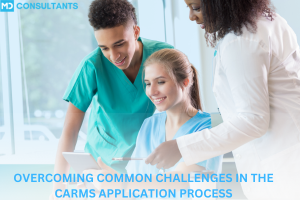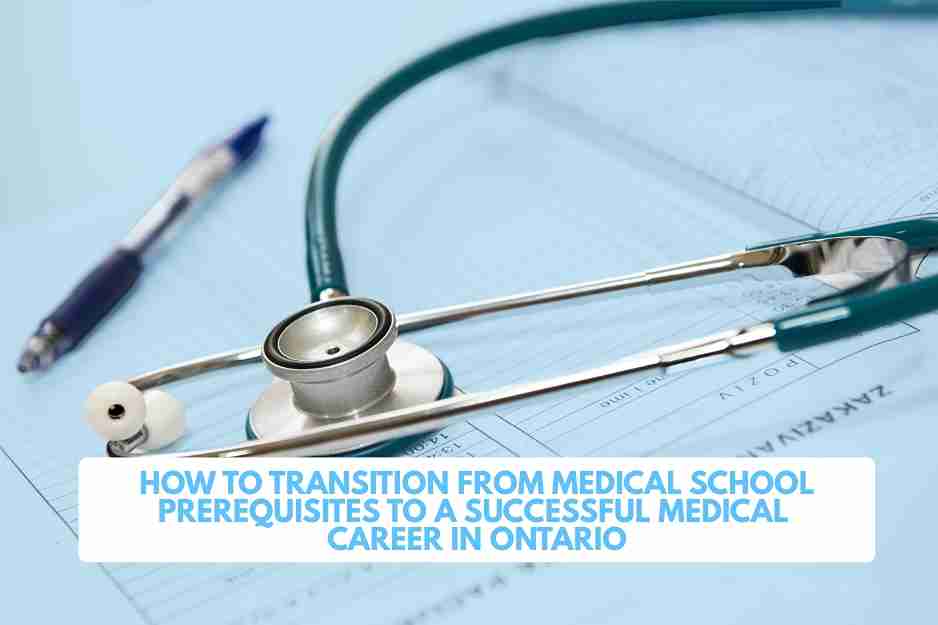Written by a first year University of British Columbia medical student.
No matter how prepared we are, applying to and interviewing for medical school can be extremely daunting experiences to face. When I started preparing for my interviews, I found that I often struggled to think of examples of displaying “X” or doing “Y” on the spot. It wasn’t that I lacked in professional or life experience, but rather I rarely took time to stop and self-reflect during the busy pace of my undergrad. Since then, I’ve used a few tips to better brainstorm and communicate my experiences:
1) Ensure that your CV is fully updated with all the roles that you’ve occupied. It’s important to note that you want to make sure you have an organized list of all your experiences in a professional setting. When I looked back on my past positions, I often looked at my best version of my resume. However, the resume was tailored towards a certain position and didn’t reflect all the odd jobs I often forget about. Once it’s fully updated, read over your entire CV multiple times! This will help to keep the roles fresh in your mind if relevant interview questions get asked.
2) It’s not only important to know what you did, but also essential to expand on what you learned from the roles. I found that I often put the tasks I did on my CV, but I didn’t really think about the soft skills I gained from the positions. Some good questions to ask yourself are “were there any conflicts or issues that arose?”, “did you have any interesting experiences?”, “did you gain any insights about yourself in those roles?”, “did you face any ethical dilemmas?”, “did you learn how to present data and research?”, and “did you meet and engage with diverse groups of people?” I found it quite helpful to make a spreadsheet with my roles and CV descriptions in one column, and what I learned/unique experiences beside it in another column.
3) Don’t diminish the importance of personal life experiences! Personal experiences can be just as meaningful as professional ones, if not more. For example, I brought up my experiences with discrimination during my interview and related it to discrimination within the medical system. Consider the difficult experiences you’ve been through (that you feel comfortable enough to talk about). Did you go through the loss of a loved one? Did you go through a difficult break-up? Did you have trouble fitting in at school? Reflecting and discussing events in your personal life not only help to show a sense of self-awareness, but also can help you evaluate what happened in another light.
4) Focus on your insecurities and your weaknesses. It was difficult for me to be brutally honest and recognize what my actual weaknesses were, instead of just going back to the cliche of “being too much of a perfectionist” when asked. Instead, be honest about what your flaws are and figure out how to work through them. Knowing what you’re insecure about or weak on is also incredibly important in order to navigate your emotional state within medicine.
5) Another difficult topic to address is whether or not you have biases. Although we like to think of ourselves as non-prejudiced people, most of us do have inner biases that we may not recognize. For example, you may find yourself making assumptions about other people in different professions, from different backgrounds, or those who belong to different political groups. Recognizing that you have a bias is a very important part of self-reflection and is something a lot of people unfortunately don’t often partake in. Challenging the bias won’t only help you improve your self-awareness, but also help you treat your future patients in a safer manner.
6) Lastly, recognize the signs of when you’re stressed or burnt out. We all know that the medical journey is a long and taxing one and addressing burn-out is a significant task we all face. It’s easy to feel uncertain, have self-doubt, and feel overwhelmed while applying to medical school, especially in our current political, cultural, and public health atmosphere. How do you react to feeling stressed and overwhelmed? Are there activities that you do that help to relax you? Do you have a social support system in place? Remember to take a step back, focus on yourself, and reach out for help if you need it.


